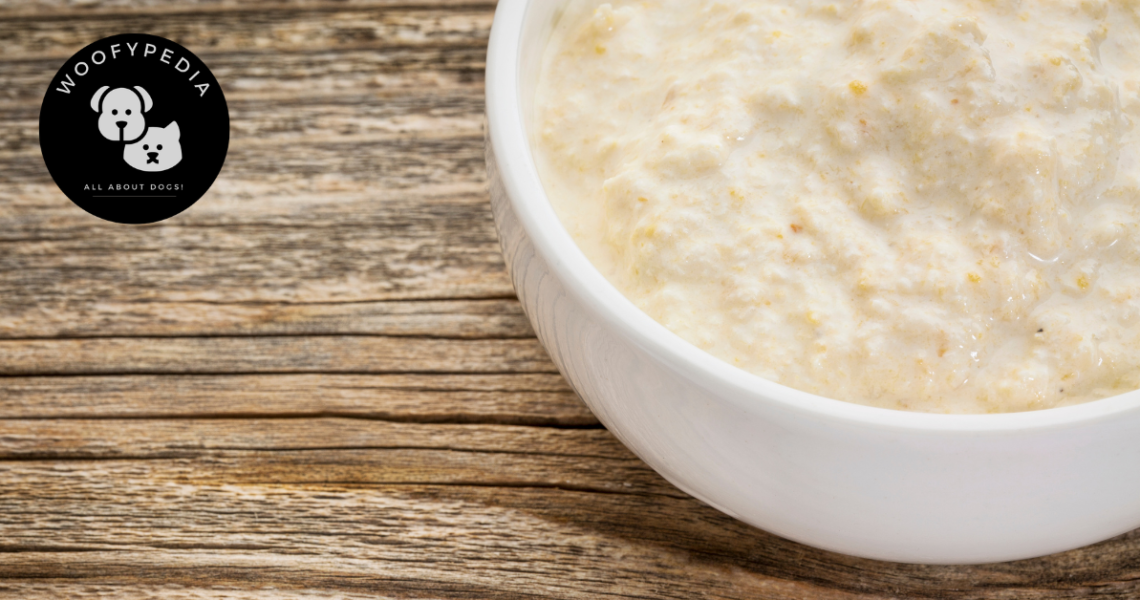Can I give my dog Horseradish Sauce? A guide for owners …
Can Dogs Eat Horseradish Sauce?
Dogs should not eat horseradish sauce. While horseradish itself is not toxic to dogs, it can cause severe gastrointestinal distress, irritation to the mouth and throat, and discomfort due to its pungency and spiciness. Additionally, horseradish sauce often contains ingredients like mustard, vinegar, or even artificial additives that are harmful to dogs. It’s best to keep this condiment out of your dog’s diet and opt for healthier alternatives instead.
Can Dogs Eat Horseradish Sauce? A Comprehensive Guide
Introduction
Dogs are naturally curious creatures and often express interest in whatever their owners are eating. While sharing snacks with your furry friend can be tempting, it’s crucial to ensure the food is safe for them. One common query among dog owners is whether dogs can eat horseradish sauce. In this article, we’ll explore the ingredients of horseradish sauce, its potential impact on your dog’s health, and safer alternatives for treating your pup.
What is Horseradish Sauce?
Horseradish sauce is a condiment made from grated horseradish root, vinegar, and cream, often combined with additional ingredients like mustard, sugar, or mayonnaise. Its spicy and tangy flavour makes it a popular accompaniment to dishes like roast beef and seafood.
While horseradish root itself is potent and pungent, the sauce is often milder due to the dilution from other ingredients. Despite this, the sauce can still be problematic for dogs due to its composition.
Why is Horseradish Sauce Unsuitable for Dogs?
1. Irritation from Horseradish Root
Horseradish root contains natural compounds, such as isothiocyanates, which give it its spicy kick. These compounds can cause irritation to the sensitive tissues in a dog’s mouth, throat, and digestive system.
- Signs of irritation in dogs include:
- Drooling
- Pawing at the mouth
- Vomiting
- Diarrhoea
2. Additional Harmful Ingredients
Horseradish sauce typically contains several additives that are unsafe for dogs:
- Mustard: Mustard seeds are toxic to dogs and can lead to severe gastroenteritis.
- Vinegar: The acidic nature of vinegar may upset a dog’s stomach.
- Cream or Mayonnaise: High-fat ingredients can contribute to obesity, pancreatitis, or other digestive issues in dogs.
- Salt and Sugar: Excessive salt and sugar in condiments can lead to dehydration, electrolyte imbalances, or weight gain in dogs.
3. Spiciness and Discomfort
Dogs are not accustomed to spicy foods. Horseradish sauce’s heat can cause significant discomfort, leading to gagging, sneezing, or a burning sensation. Dogs lack the enzymes to process spicy compounds effectively, making it an unpleasant and potentially harmful experience for them.
What Happens if a Dog Eats Horseradish Sauce?
If your dog accidentally consumes a small amount of horseradish sauce, the effects will depend on the quantity and the dog’s size and health. Here’s what you might expect:
Mild Symptoms (Small Amount Ingested):
- Drooling
- Temporary mouth discomfort
- Mild stomach upset
Severe Symptoms (Larger Quantity Ingested or Small Dog):
- Persistent vomiting or diarrhoea
- Dehydration
- Abdominal pain
- Difficulty swallowing
When to Contact a Vet
If your dog exhibits severe symptoms or consumes a significant amount of horseradish sauce, contact your vet immediately. Always err on the side of caution when it comes to your dog’s health.
Safe Alternatives to Horseradish Sauce for Dogs
If you’re looking for ways to treat your dog, there are plenty of safe and nutritious alternatives to horseradish sauce. Consider the following options:
Plain Cooked Vegetables
Vegetables like carrots, green beans, or sweet potatoes are safe for dogs and provide essential vitamins and fibre. You can steam or bake them for a healthy snack.
Dog-Safe Fruits
Fruits like blueberries, apples (without seeds), and bananas make great treats. They are low in calories and packed with nutrients.
Commercial Dog Treats
Invest in high-quality dog treats made with natural ingredients. Look for options specifically designed to support your dog’s health, such as dental chews or grain-free snacks.
Homemade Dog Treats
Create homemade treats using dog-friendly ingredients. Recipes involving oats, peanut butter (xylitol-free), and pumpkin can be both fun to make and safe for your dog.
How to Prevent Your Dog from Eating Unsafe Foods
1. Keep Unsafe Foods Out of Reach
Store foods like horseradish sauce and other condiments in cupboards or high shelves where your dog cannot access them.
2. Train Your Dog
Teach commands like “leave it” or “drop it” to prevent your dog from picking up unsafe foods. Positive reinforcement training methods are highly effective.
3. Monitor Your Dog
Supervise your dog during mealtimes and clean up any leftovers promptly. Dogs are opportunistic eaters and may be quick to grab food from plates or bins.
FAQs about Dogs and Horseradish Sauce
1. Can dogs eat horseradish root?
No, dogs should not eat horseradish root. Its spicy compounds can cause mouth irritation, stomach upset, and discomfort.
2. What should I do if my dog eats horseradish sauce?
Monitor your dog for signs of distress, such as vomiting, diarrhoea, or drooling. Offer plenty of water and contact your vet if symptoms persist or worsen.
3. Are there any health benefits to horseradish for dogs?
While horseradish has some antibacterial properties, the risks far outweigh any potential benefits for dogs. It is not recommended to include horseradish in their diet.
4. Can I give my dog spicy foods?
No, dogs should not eat spicy foods. Their digestive systems are not equipped to handle spices, and such foods can cause gastrointestinal issues and discomfort.
Final Thoughts
Dogs should not eat horseradish sauce, as it poses several risks to their health and wellbeing. While sharing food with your furry friend can be rewarding, it’s essential to choose safe and nutritious options that support their overall health. By understanding the potential dangers of certain foods and providing dog-friendly alternatives, you can ensure your pup stays happy, healthy, and safe.
Return to “Can dogs eat Christmas Dinner …”
<< Can Dogs Eat Christmas Dinner? Discover the Foods That Are Safe and What to Avoid
